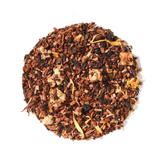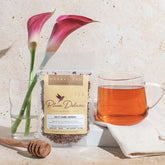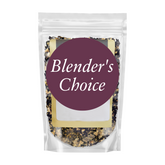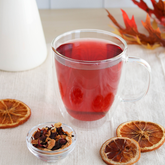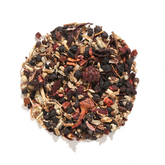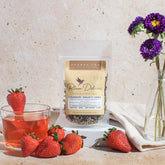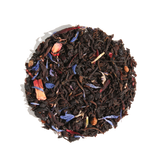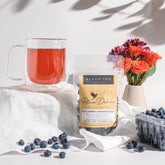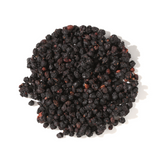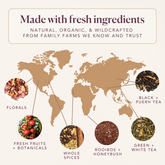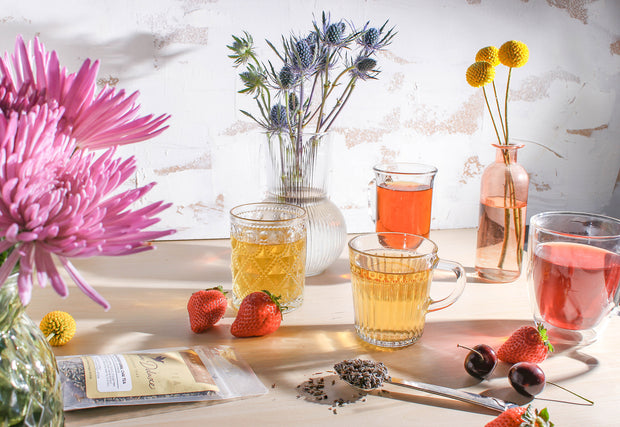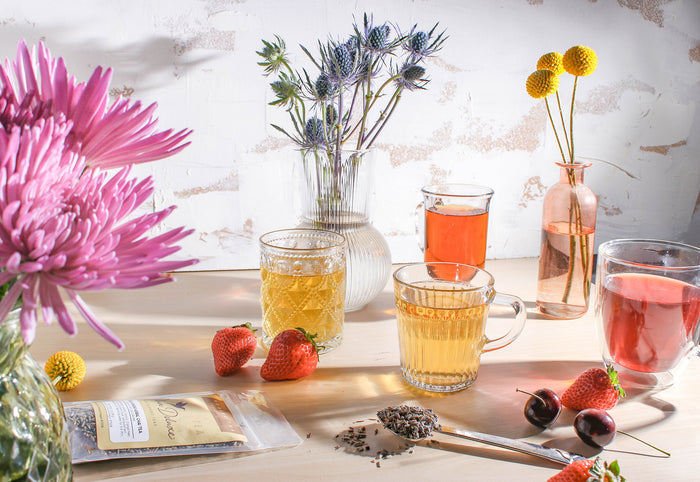One of the most common questions we get here at Plum Deluxe is what is the best tasting tea for beginners? It's a good one - especially if you grew up drinking inexpensive supermarket teas that might not be quite what you are hoping for in a hot beverage.
Below, we'll explore first some of the most common teas that, in our experience, are the best tasting tea for non tea drinker type folks, and then we'll talk about some common mistakes in brewing tea itself that can lead to tea being bitter or unflavorful.

Best Tasting Tea for Beginners
Mostly, it seems to me the biggest complaint about tea taste is the bitterness. So, why not start with teas that are on the sweeter end to start. Honeybush teas are naturally sweet and easy to avoid oversteeping -- we have paired honeybush with some excellent combinations, such as apricot/rose, apricot/elderberry, or chocolate/hazelnut. We also have some sweeter tea blends overall, such as coconut macaron. (Tip: try sweet teas or dessert teas first before adding sweetener so you know how much you need to add.)
Secondly, in my opinion one of the best tasting tea flavors for beginners is fruit - think oranges, peaches, berries. The tart and citrus flavors balance out the tannins in tea and can create a nice balance; that is likely one of the reasons Earl Grey (black tea with bergamot, a type of orange) is perhaps the most popular tea blend of all time. Our Gratitude Blend strawberry Earl Grey is one of our best sellers! White teas are often paired naturally with fruit (example, we do a peach/pear white), but be sure to avoid bitterness by not using boiling water. Herbal teas are often paired with fruit for a melange of flavor (our Peach Bellini herbal blend is a good example). Dragonfruit, pineapple, blackberry -- the options are endless.
For the best tasting tea for non tea drinker folks, go for the easy wins - such as dessert teas that have a natural sweetness and playfulness, or teas for coffee drinkers such as anything hazelnut.
Lastly, spicy chai blends can often overcome the 'bad' tea taste - they're sometimes just as much spices as tea itself. Masala chai is a traditional chai blend with black tea, but we sell a mate chai that is very popular (the hint of smokiness from the mate creates a wonderful balance). We also sell a blackberry rose chai that is both sweet and spice, if you like your tea to have a floral note.

Best Tasting Tea Brewing Tips
We've talked about how to make loose leaf tea without an infuser, but, let's talk about some of the most common problems that can lead to tea that doesn't taste good.
- Don't pack your infuser too full. You want the loose tea to have a lot of space to expand when it is inside the infuser. Otherwise, the water can't do its job. More tea does not equal more flavor.
- Don't leave the tea in the infuser too long. In most cases, tea doesn't need to steep more than 3-5 minutes. Some herbal teas can steep longer without problem, but don't oversteep. Too much time = bitter tea. This is particularly important for green teas and white teas, which are very sensitive.
- Honey and sugar won't taste exactly the same (and don't over do it). When sweetening your tea, honey and sugar don't do the same thing. For example, any tea with mint you'll find you might love it with honey and hate it with sugar, or vice versa. Also, consider trying just a touch of sweetener first - too much sweetener can have unintended consequences, while just a tiny bit of sweetener can enhance the tea's flavor.
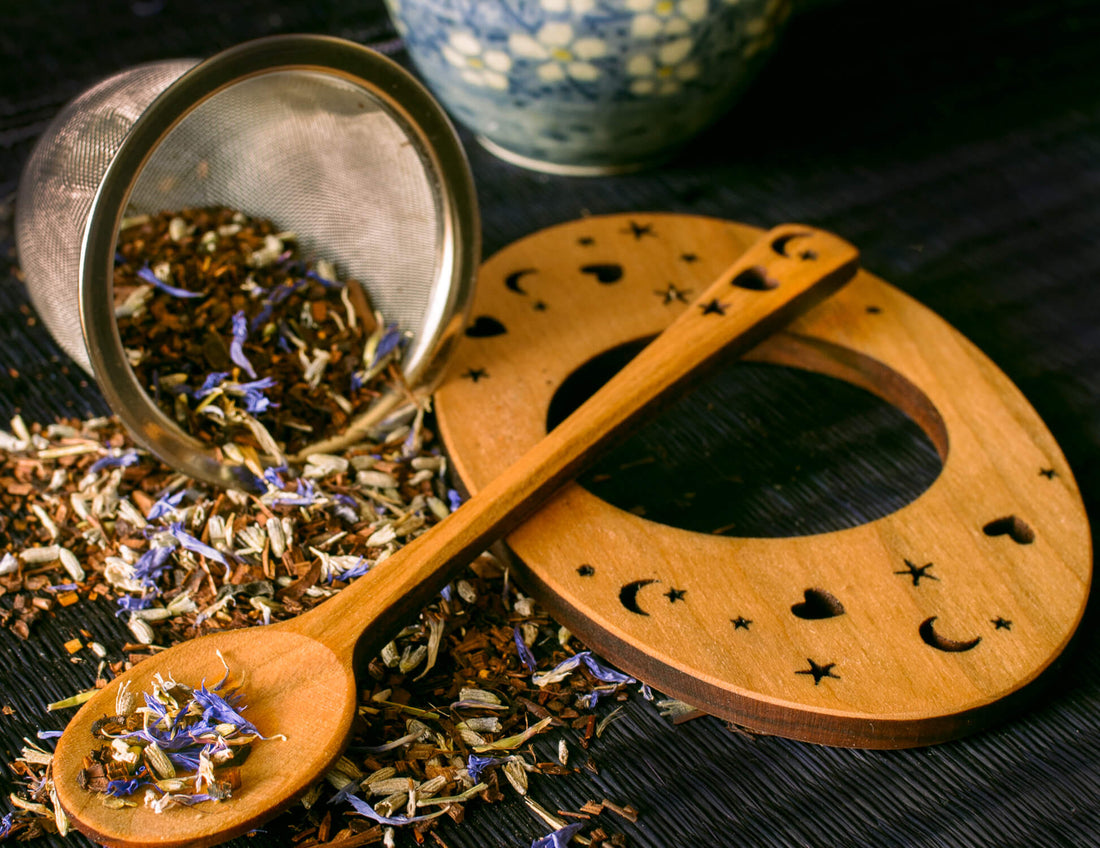
![Spring Break Tea Variety Pack [6-Pack Variety of Flavors]](http://www.plumdeluxe.com/cdn/shop/files/spring-break-pack.jpg?v=1740682266&width=165)

